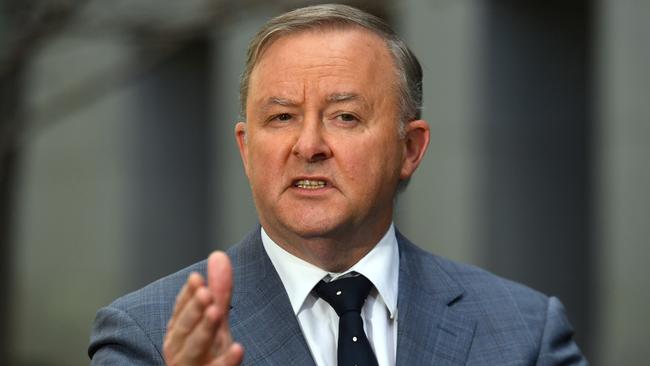
The Opposition Leader was also justified in citing his own decades-long fight within the ALP against corruption and organised rorting.
As a 20-year-old, Albanese campaigned within the NSW branch against corruption, violence, branch stacking and factional rorts and as Federal Labor leader directed the root and branch reforms of the NSW ALP branch after revelations of endemic rorting and questionable
fundraising.
Albanese also acted swiftly — calling Daniel Andrews immediately and organising a national executive meeting to expel Somyurek from the ALP.
Minutes before that meeting began, Somyurek quit the party.
While Albanese deserves recognition for his history and credit for his immediate action there were also compelling political reasons for Albanese to act so publicly and seek to determine “what the story” is with the 60 Minutes revelations.
The Labor leadership position on these secret recordings of Somyurek’s alleged industrialised” branch stacking is concentrated on the offensive and abusive language about his colleagues and Labor staffers.
Albanese wanted to demonstrate leadership within the Labor Party after suffering from a public backlash against Labor because of the NSW rorts, he wanted to identify with the Victorian Premier’s leadership and reassure the public there would be a real inquiry and action.
But he also wanted to concentrate on an individual, who he didn’t know, pursuing “powerful interests” and “an individual engaged in inappropriate” behaviour.
As Andrews highlighted the offensive and foul language, so too did Albanese talk about the “inappropriate” behaviour and wanted to define “what the story is”.
Albanese is much more inclined to talk about the inappropriate behaviour and the swift action in expelling Somyurek than he was in answering questions about what the implications were branch stacking and in the naming of several of his Victorian backbench colleagues.
Albanese, apart from defending his backbench colleague Anthony Byrne as doing a good job, didn’t want to expand on the “details” or address the questions on what impact the factional power struggles and alleged branch stacking had on the federal ALP and indeed leadership
elections which could have involved phantom members.
The Labor leader has acted correctly and quickly so far, but factional power plays and destruction of Labor MPs and members already on display will demand a longer, more considered response.






Anthony Albanese has acted quickly, decisively and correctly in helping to get rid of Adem Somyurek from the Victorian Labor Cabinet and, ultimately the Australian Labor Party.